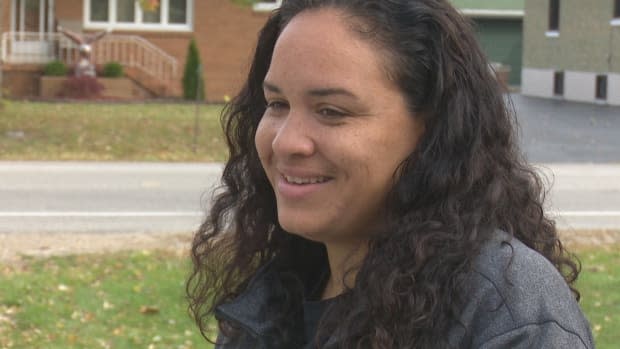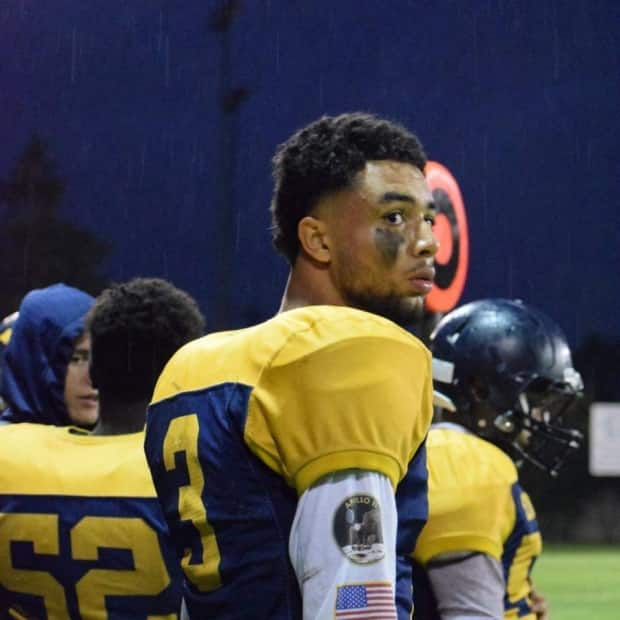Some parents expressing concerns over high school instruction plan
Parents of some high school seniors who attend schools in the Greater Essex County District School Board are concerned their children will not be prepared for post-secondary school if they continue to attend classes the way they are currently structured.
It's one of a number of concerns coming from parents CBC News has spoken with regarding the pandemic protocols, now that students are several weeks into the first of four quadmesters.
"And the problem with online learning is a lot of times you can't ask questions, you don't have feedback, and it just doesn't work for some people," said Gregory Moore, parent of a Grade 10 and Grade 12 student at General Amherst High School in Amherstburg.
He feels if elementary school students can attend all classes in person, high schoolers should be able to too.
Moore's sons Jonah, 17, and Jordan, 15, attend school in person in a rotation two or three times a week for about three hours at a time. The rest of the time is made up through online learning — sometimes the teacher is teaching live and sometimes the course is prepackaged.
But Jonah says even if the teacher is live, interaction is difficult.
"You're not in the class. You can't ask the teacher a lot. You have to send a message through the online," said Jonah.
Moore is especially concerned because his sons missed half of last year.
Jordan is also frustrated that the year is split up into four quadmesters.
"We're going way too fast in each subject because we have to squash all of what we're supposed to do in a half a year of school into a quarter year school," said Jordan.
Meanwhile, Stephanie Patterson — whose son Billy attends Kennedy Collegiate Institute in Windsor, doesn't feel her son can concentrate on the material — either online or in the 225 minute in-class periods.

"Are they getting everything that they really should be getting out of school? And I don't think that they are," said Patterson. "We always talk about how important teachers are to students. This is a prime example of how important that teacher student relationship is."

The local president of the OSSTF agrees. Erin Roy says the union is pushing for a different model — one that includes 150 minutes of instruction in the morning and 150 minutes in the afternoon with the same teacher.
She realizes the province has mandated the GECDSB be one of 24 high schools that are designated to split instruction between online and in-person classes. That's due to the size of the population of the schools. Western Secondary School is exempt because its population is smaller.
But she says this model is stressful for both teachers and students.
"Sometimes it feels like we're talking into the void. You're like — hello, are you there?" said Roy. "We aren't set up to do virtual or distance learning in the way that we should."
Todd Cunningham, school and clinical psychologist and assistant associate professor at the University of Toronto, says research shows that students can learn online, but he agrees some students will find the schedules too much to deal with.
"The bigger thing is just ... both for teachers, students and parents just to really be organized around the complexity these schedules seem to have," said Cunningham. "I think the changing of schedules is the piece that's kind of adding more stress to students and parents."
"I heard somebody [a teacher] say the quote — 'I'm already June tired, and we were only at Thanksgiving', said Roy.
Roy also believes the province should allow school boards the flexibility to offer a fifth year to seniors if they need it. Currently, students can't acquire more than 34 credits. She also thinks the province should do away with standardized testing this year because of the unusual circumstances.
"We have been declared a Designated Board by the Ministry of Education which requires us to follow strict guidelines on cohorts for students and reduce the potential number of contacts, as set out in our Return to School document," school board public relations officer Scott Scantlebury wrote in an email, suggesting we direct our questions to the Ministry of Education.
A ministry spokesperson sent a written statement that reads in part :"The designation of these school boards is based on several factors that take into account the size of the school board, the number and size of the board's secondary schools, the size of secondary grade cohorts and whether the board is predominantly urban. Co-terminous boards have also been designated wherever these criteria are met," writes Ingrid Anderson.
"The designation status of school boards will be reviewed regularly to support a future transition into a conventional delivery model when it is safe and appropriate to do so."


